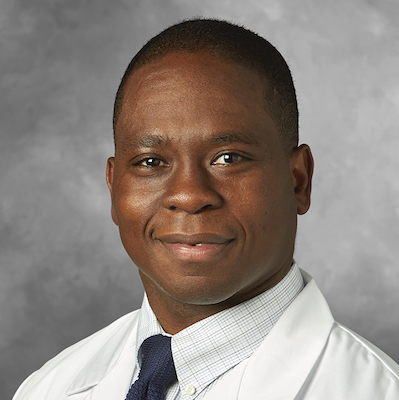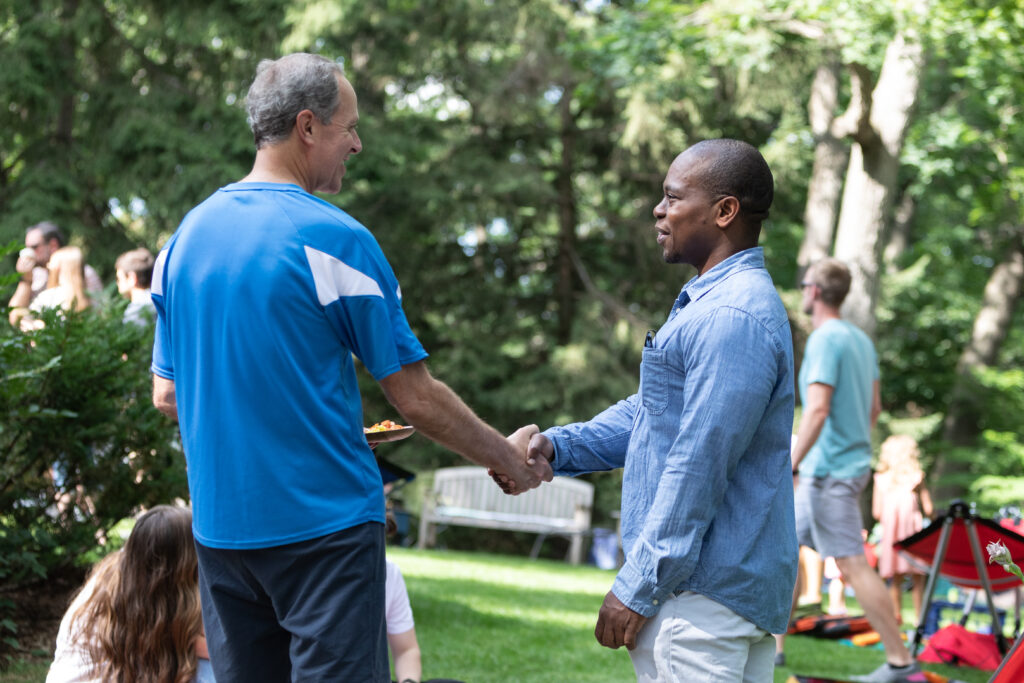
The Department of Human Oncology (DHO) welcomed its new Bentson Translational Research Fellow Dr. Quaovi Sodji in August.
Originally from Togo, Dr. Sodji earned his MD at the Medical College of Georgia and his PhD in medicinal chemistry at the Georgia Institute of Technology and completed his radiation oncology residency and a one-year fellowship at Stanford University.
Under the joint mentorship of Drs. Zachary Morris, DHO associate professor, and Christian Capitini, associate professor of pediatrics, Dr. Sodji will conduct research aimed at enhancing the efficacy and safety of chimeric antigen receptor (CAR T) cell therapy by combining it with targeted radionuclide therapy (TRT).
CAR T cell therapy is a type of immunotherapy in which a patient’s T cells are modified so that they better recognize a specific target on cancer cells. TRT uses agents that are composed of a radioactive element bound to a targeting vector that is selectively taken up by and retained in most cancer cells. This enables selective delivery of low-dose radiation to modulate the tumor microenvironment and tumor cells.
“Scientists have known for some time that in addition to killing cancer cells by causing DNA damage, radiation also has a stimulatory effect on the immune system,” Dr. Sodji says. “One of the advantages of radionuclide therapy is that it delivers radiation systemically so we can target all cancer sites. The goal of this project is to determine if we use the radionuclides to prime cancer cells to make them more sensitive to the CAR T cell therapy.”
This area of research is part of a broader interdisciplinary effort by Dr. Morris and others to investigate the immune effects of radiation, particularly TRT.

“Dr. Sodji is coming into an area where we generated some exciting data and see a clear opportunity for further research. We’re hoping to take this work to the next level with Dr. Sodji and look for ideal ways to integrate these therapies in terms of timing, dose, and application in different tumor models,” Dr. Morris says.
“We’re starting from almost a blank slate that will enable us to do some of the initial in vitro and in vivo work that will give us a better understanding of the field,” Dr. Sodji says. “A lot of work has been done in looking at immune checkpoint inhibitors in combination with radiation, but there has not been as much research that looks at targeted radionuclide therapy in combination with CAR T cell therapy. I hope that in my time at the University of Wisconsin we will lay down some of the preclinical work to guide future efforts to conduct human clinical trials and eventually translate this technology to the clinic.
“In terms of my career, I am working toward becoming an independent physician-scientist. The Bentson Translational Research Fellowship has a great track record in helping to launch the careers of physician-scientists. Their success reflects the quality of mentorship and the caliber of research at the university.”
Dr. Morris says that the fellowship will provide him with the experience and support to emerge as an independent investigator. “We’ve been fortunate to recruit top-tier individuals who are committed to pursuing careers in translational research as physician-scientists. Dr. Sodji fits that mold. He’s a fantastic physician-scientist. This fellowship will give him the opportunity to generate his own model systems and research to enable him to launch his own lab with a rapid growth trajectory, which is so critical to physician-scientists in the early stage of their careers. We look forward to great things from him as a fellow.”